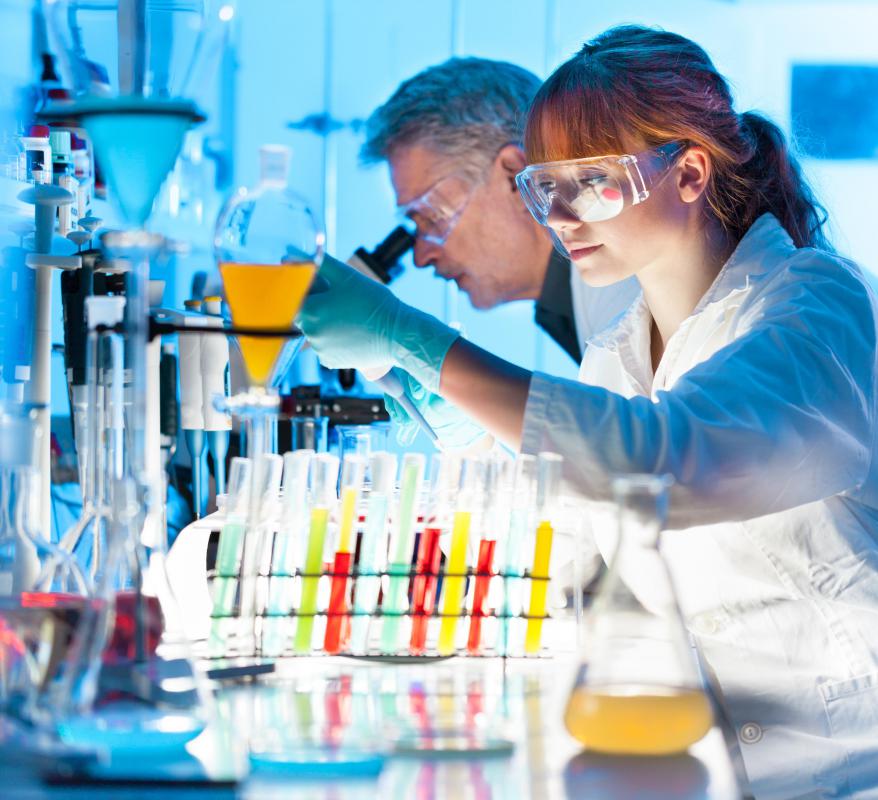At WiseGEEK, we're committed to delivering accurate, trustworthy information. Our expert-authored content is rigorously fact-checked and sourced from credible authorities. Discover how we uphold the highest standards in providing you with reliable knowledge.
What is a Clinical Laboratory Scientist?
A clinical laboratory scientist works in a hospital or clinic laboratory. His or her job is to collect, test, and analyze samples from patients in order to diagnose and treat disease. Sometimes called a clinical lab tech, or medical tech, a clinical laboratory scientist performs tests ordered by doctors in order to provide information about the health of a patient. Doctors use this information to diagnose, prevent, and treat disease.
Clinical lab scientists often use sophisticated biomedical techniques, instrumentation, and computers to perform tests on blood and bodily fluids. For example, clinical lab scientists use microscopes to examine and identify different cell types. They also use diagnostic kits to detect chemicals in the blood. Excellent sterile technique and manual dexterity are required in order to maintain safe conditions in an environment where blood and other body fluids are present. A clinical lab scientist also has access to confidential medical information, and must keep that information private.

Examples of the kinds of tests a clinical lab scientist may perform include determining the amount of cholesterol in a patient's blood sample, checking for changes in the appearance cervical cells, detecting drugs of abuse in the bloodstream, or detecting bacteria in urine. These tests are essential in diagnosing and treating heart disease, cervical cancer, and bladder infections, and in detecting drug abuse. A large number of diseases and disorders depend on accurate lab tests for their diagnosis, treatment, and prevention. Indeed, a laboratory is a critical part of modern hospitals and clinics.

Clinical laboratory technicians complete an Associates degree or certificate program focusing on the theoretical and practical aspects of clinical laboratory science. Someone with a Bachelor's degree from an accredited clinical laboratory science program can become certified in the field, and work as a clinical laboratory scientist. Training in a Baccalaureate degree program will includes more in depth courses than technician classes, as well as management and education courses. Universities with academic medical centers often have degree programs in clinical laboratory science.

The term clinical laboratory scientist generally does not refer to a Ph.D. or M.D. level scientist doing clinical research. Clinical research involves using patients in academic research to study problems related to health and medicine. Clinical research may be done in a laboratory or a clinic, but is not typically done in a hospital lab - the workplace of a clinical laboratory scientist. A hospital lab serves primarily serves the purpose of running tests on samples from patients of that hospital.
AS FEATURED ON:
AS FEATURED ON:















Discuss this Article
Post your comments